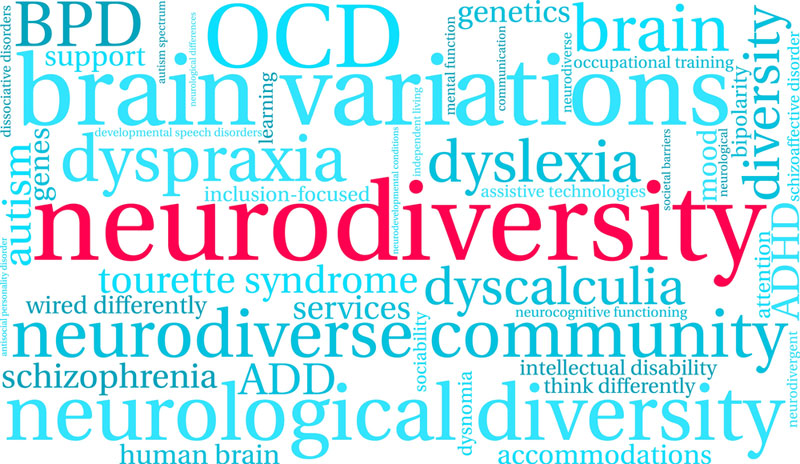Borderline Personality Disorder and Attention Deficit Hyperactivity Disorder are mental health conditions that can have a significant impact on a person’s life. They are complex and require proper care and attention. Despite their differences, they can sometimes appear similar due to overlapping symptoms, such as impulsivity and difficulties with attention.
However, understanding the nuances between BPD and ADHD is essential for accurate diagnosis and effective treatment. This blog post aims to demystify these two disorders by exploring their differences and similarities and offering insights into their management.
What Is BPD?
Borderline Personality Disorder is a mental health disorder characterized by pervasive instability in moods, behavior, self-image, and functioning. Individuals with BPD experience intense episodes of anger, depression, and anxiety that can last from a few hours to days. They may have difficulty in maintaining stable relationships and often exhibit a fear of abandonment. Impulsive behaviors, such as excessive spending, risky sexual conduct, substance abuse, and binge eating, are also common.
Symptoms Of BPD
- Emotional Instability: Rapid and extreme mood swings.
- Fear of Abandonment: Efforts to avoid real or imagined abandonment.
- Unstable Relationships: Alternating between idealization and devaluation of others.
- Impulsivity: Engaging in risky behaviors without considering the consequences.
- Self-Image Issues: A persistently unstable self-image or sense of self.
- Self-Harming Behaviors: Suicidal threats, gestures, or behavior or self-harming behavior.
- Chronic Feelings of Emptiness: Feelings of emptiness that persist over time.
- Intense Anger: Inappropriate, intense anger or difficulty controlling anger.
What Is ADHD?

ADHD is a condition that affects both children and adults. It’s a disorder that makes it challenging to focus or pay attention for long periods. Men with ADHD can also be very active and impulsive, which can make it difficult to complete tasks or behave appropriately in social situations. This condition can make life more challenging, but there are ways to manage it and lead a fulfilling life.
Symptoms Of ADHD
- Inattention: Difficulty maintaining focus, following through on tasks, and organizing activities.
- Hyperactivity: Excessive fidgeting, talking, or difficulty remaining seated.
- Impulsivity: Hasty actions without forethought, interrupting, or difficulty waiting one’s turn.
- Forgetfulness: Frequently losing items or forgetting daily activities.
- Poor Time Management: Struggling with punctuality and managing time effectively.
- Difficulty in Finishing Tasks: Starting tasks but often needing to finish them. Tendency to evade tasks that require continuous mental exertion.
Medella Springs Supplements For DPB And ADHD
Introducing our innovative range of supplements designed to support individuals coping with Borderline Personality Disorder (BPD) and intrusive thoughts ADHD. Each product addresses the unique challenges associated with these conditions, from managing stress and behavior to enhancing memory and focus.
Addivance is particularly effective for BPD, showing significant improvements in anger management, focus, and emotional stability in clinical trials. It’s ideal for reducing frustration and aggression and enhancing performance in stressful situations, making it a prime choice for managing BPD symptoms.
Calmposure alleviates episodic stress and anxiety with its natural blend of vitamins, minerals, and amino acids. It’s especially suitable for individuals with BPD and ADHD, helping to manage stress and anxiety by supporting a healthy nervous system and balancing stress hormones.
LuciPlex focuses on comprehensive brain health and has been proven to improve memory, focus, cognition and slow brain shrinkage. Its natural ingredients make it a valuable supplement for ADHD, enhancing cognitive functions and neurotransmission essential for daily activities.
Key Differences between BPD and ADHD
After discussing the BPD and ADHD symptoms, let’s explore several key differences between them:
Origin and Development
BPD is generally considered a personality disorder that develops due to a combination of genetic, environmental, and social factors, often rooted in early life experiences. ADHD is recognized as a neurodevelopmental disorder with a strong genetic component, typically identified in childhood, although it can continue into adulthood.
Symptom Focus
The core symptoms of BPD revolve around emotional instability, intense interpersonal relationships, and a distorted sense of self. In contrast, ADHD primarily involves issues with attention, hyperactivity, and impulsiveness, not necessarily tied to emotional dysregulation or relationship issues.
Emotional Responses
Individuals with BPD may experience very intense emotional responses and fears of abandonment, which can lead to rapid changes in their feelings toward others. While people with ADHD can also experience emotional dysregulation, it is more related to their difficulties with attention and impulse control rather than fears of abandonment or identity issues.
Similarities Between BPD And ADHD
Despite their differences, BPD and ADHD share some overlapping symptoms, which can sometimes complicate diagnosis:
Impulsivity
Impulsive behaviors characterize both conditions. For individuals with BPD, impulsivity may manifest in risky behaviors driven by emotional distress. In ADHD, impulsivity is more about acting without thinking due to difficulties with self-control.
Attention Issues
While attention difficulties are a hallmark of ADHD, individuals with BPD may also experience problems focusing, particularly during periods of intense emotional turmoil.
Mood Swings
Both BPD and ADHD can involve rapid mood changes. However, the cause and duration of these mood swings differ, with BPD mood swings being more related to interpersonal stressors and ADHD mood swings often resulting from frustration or sensory overload.
Diagnosis And Treatment

Accurate diagnosis of BPD and ADHD requires a comprehensive evaluation by a mental health professional. This evaluation typically includes clinical interviews, psychological testing, and a detailed history of symptoms and their impact on daily functioning.
Treatment for BPD and ADHD also varies:
BPD Treatment
Therapy is the cornerstone of BPD treatment, with Dialectical Behavior Therapy (DBT) being particularly effective. DBT focuses on teaching coping skills to manage emotions, reduce self-destructive behaviors, and improve relationships. Medication may be prescribed to address specific symptoms such as mood swings or depression.
ADHD Treatment
Treatment for ADHD often includes a combination of medication, such as stimulants or non-stimulants, and behavioral interventions. Strategies for managing time, organizing tasks, and reducing distractions are crucial for individuals with ADHD. Therapy may also help address any co-occurring emotional issues or improve social skills.
Conclusion
While BPD and ADHD can present with some overlapping symptoms, they are distinct conditions with different origins, symptomatology, and treatment approaches. Understanding the differences and similarities between these disorders is essential for accurate diagnosis and effective management. If you suspect that you or someone you know may be experiencing symptoms of BPD or ADHD, seeking evaluation from a mental health professional is a crucial first step toward receiving the right support and treatment. With appropriate care, individuals with BPD or ADHD can lead fulfilling lives, managing their symptoms and leveraging their strengths.

